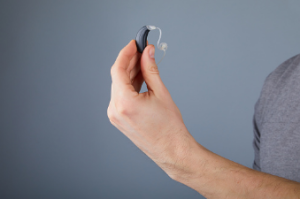When considering where to buy hearing aids, you should know a few critical things. It would be best if you were sure to get the right pair the first time and ensure that the advice you receive from the professionals is of high quality.
OTC vs. prescription
If you are struggling with hearing loss, consider an over-the-counter (OTC) device or a prescription device. Both are effective ways to treat hearing impairment but have advantages and disadvantages. Knowing what kind of hearing loss you have is vital before choosing a hearing aid. Check out where to buy hearing aids Adelaide.
OTC devices are a good choice for people with mild to moderate hearing loss. They can help you hear sounds in a variety of environments. However, they can provide a different amount of amplification than prescription devices.
 While prescription hearing aids are more expensive, they have more features and are better suited for severe and profound hearing loss. For instance, prescription devices have a background noise reduction feature. These devices also have built-in support for users. In addition, you can visit an audiologist or otolaryngologist for more in-depth help.
While prescription hearing aids are more expensive, they have more features and are better suited for severe and profound hearing loss. For instance, prescription devices have a background noise reduction feature. These devices also have built-in support for users. In addition, you can visit an audiologist or otolaryngologist for more in-depth help.
Audiologists and otolaryngologists are experts in measuring and treating hearing. Your hearing care provider can explain the difference between prescription and over-the-counter devices and recommend the best product for your needs.
The FDA has approved OTC hearing aids as a new category of hearing devices. These devices are regulated differently than prescription devices. Typically, they are for adults 18 and older with mild to moderate hearing loss. They can’t be sold to those under 18.
Over-the-counter hearing aids have many benefits over prescription devices. They are often cheaper and less hassle to get.
One significant advantage of over-the-counter hearing aids is that you don’t have to undergo a medical exam to purchase them. However, you still have to follow the instructions for use. It can make it difficult for someone who has yet to have a hearing test.
As with all products, you should learn more about your hearing. If you suspect you have hearing loss, you should see a doctor or audiologist as soon as possible.
Hearing problems are a risk factor for falling, and untreated hearing loss is linked to a higher risk of depression.
Regardless of which type of hearing device you choose, following the manufacturer’s recommended cleaning and maintenance procedures is essential.
Rechargeable vs. disposable battery options
Hearing aids have come a long way since they first hit the market. They are now smaller and better than ever, and rechargeable batteries are the latest advancement.
When choosing between rechargeable and disposable batteries for your hearing aid, there are many factors to consider. It’s a decision that should be made with the help of an audiologist. Check out where to buy hearing aids Adelaide.
The type of battery you opt for can affect your device’s performance and overall cost. For example, a rechargeable battery is more expensive, but a disposable one is much cheaper. You can also save money by avoiding the hassle of changing batteries every day.
Regardless of your budget, you’ll want to choose a hearing aid with a battery that will last as long as possible. However, your choice of battery will depend on your unique needs. For example, if you use your hearing aid daily, you should not charge it a few times each week.
Most hearing aid models can provide you with five hours of streaming audio. It means you don’t need to worry about missing an important call.
Rechargeable batteries also save you from the hassle of replacing batteries every night. But you may find that you need help to charge your device while you’re away from home. As such, you could end up with a dead hearing aid.
The type of hearing aid you also select significantly impacts the device’s performance. Unfortunately, rechargeable batteries aren’t available for every style of hearing aid, so check with your audiologist for recommendations.